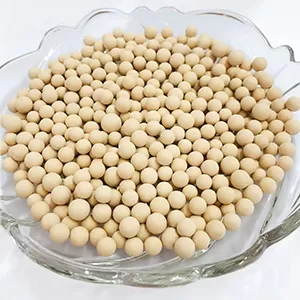molecular sieve is a broad category of aluminosilicate adsorbents, with 3A and 4A being specific types differentiated by pore size and functionality. 3A molecular sieve has 3-angstrom pores, selectively adsorbing small polar molecules like water (2.8Å) while excluding larger compounds such as ethanol (4.4Å). This makes it ideal for drying gases, solvents, and glass laminates, where precise moisture removal is critical.

4A molecular sieve, with 4-angstrom pores, adsorbs slightly larger molecules, including water, methanol (3.8Å), and carbon dioxide (3.3Å). Its broader selectivity suits applications like detergent production (as a builder) and natural gas dehydration, where removing multiple small impurities is needed. Unlike 3A, 4A can co-adsorb some larger polar molecules, limiting its use in processes requiring strict size exclusion.
In industrial packing, 3A sieve’s smaller pores reduce pressure drop in high-flow systems, while 4A’s larger pores offer higher adsorption capacity for compatible molecules. Both retain the molecular sieve’s regenerability, but 3A’s stricter selectivity minimizes product loss in purification, whereas 4A’s versatility makes it a cost-effective choice for multi-component separation. These differences—pore size, selectivity, and application scope—define their distinct roles within the broader molecular sieve family.

